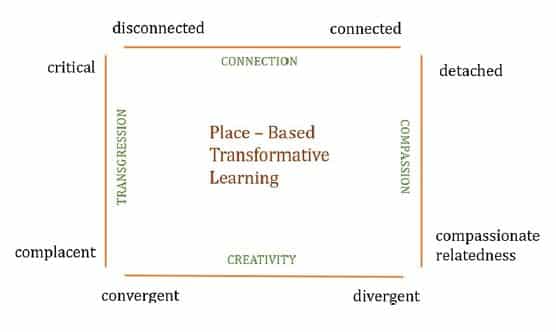
Siri Pisters is PhD-candidate at the Rural Sociology Group of Wageningen University. From April 1, 2016, until March 31, 2019, she was appointed as Early Stage Researcher at the National Resource Institute of Finland (LUKE) at the research project Eco-villages and sustainable living of the MSCA ITN programme SUSPLACE.
‘Inner change and sustainability initiatives: exploring the narratives from eco‑villagers through a place‑based transformative learning approach‘ by Siri Pisters, Hilkka Vihinen and Elisabete Figueiredo is the 7th open access article published as part of the Special Feature: Exploring the Transformative Capacity of Place-Shaping Practices in the Sustainability Science.
Abstract
In an earlier work, we suggested that connection, compassion and creativity could be used as key analytical dimensions of transformative place-based learning (Pisters et al. in Emot Sp Soc 34(8):100578, 2019). This analytical framework was created to study processes of place-based transformative learning which evoke shifts in our consciousness. This inner change might well be critical in the development of regenerative practices and places. This article aims to critically investigate the framework empirically using life-story interviews with people living in three different ecovillages. Ecovillages are so-called intentional communities which aim to develop sustainable, regenerative ways of living. Methodologically, the research is grounded in an ethnography and narrative inquiry. Following the empirical results, we will reflect on the merits and shortcomings of the analytical framework. The article concludes that the framework proved useful for its purpose if it includes a fourth dimension of ’transgression’ and portraits the dimensions as continua.
Keywords: Transformative learning, Ecovillages, Place, Narrative inquiry
